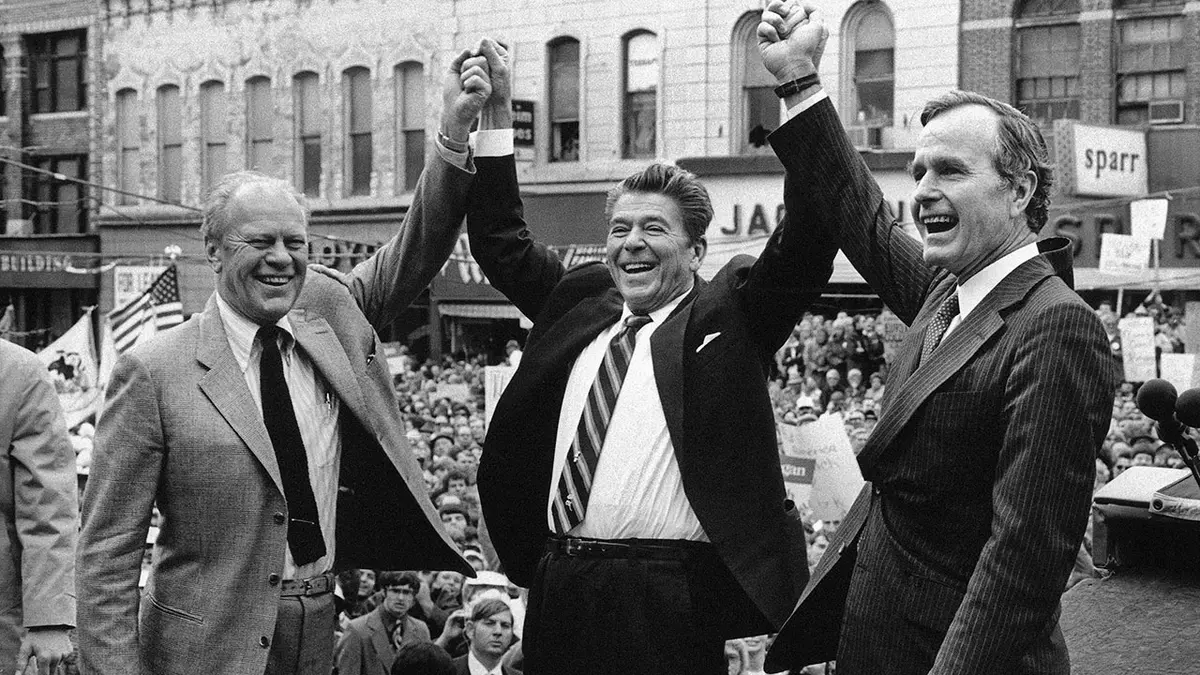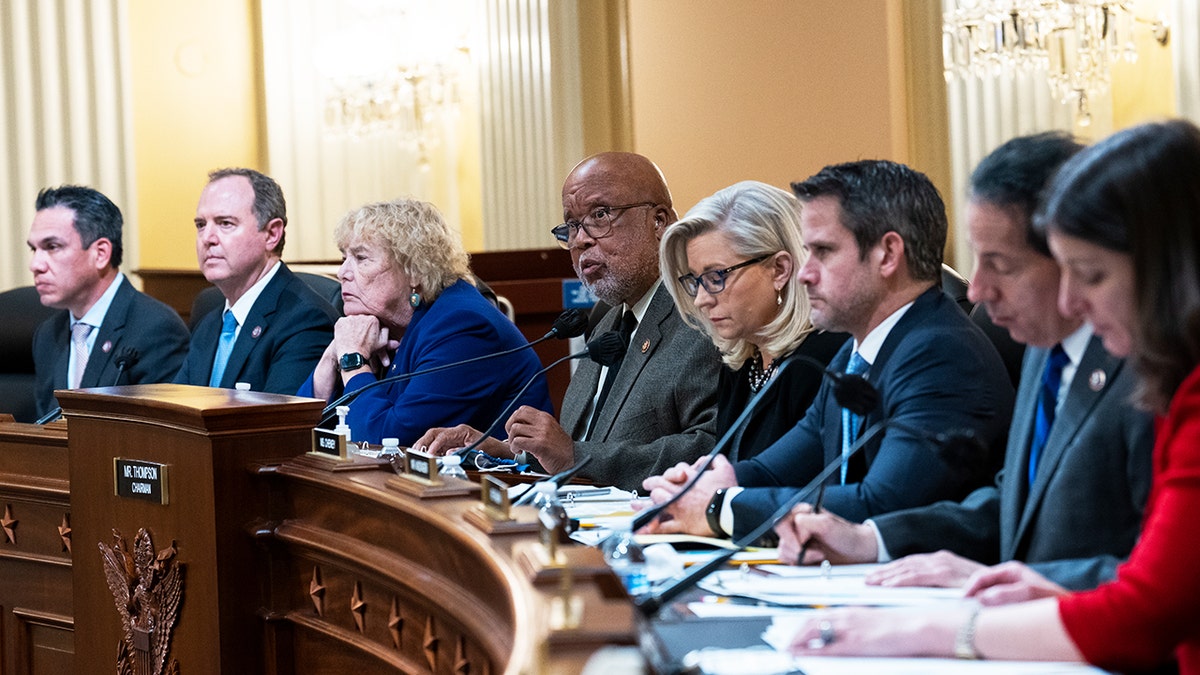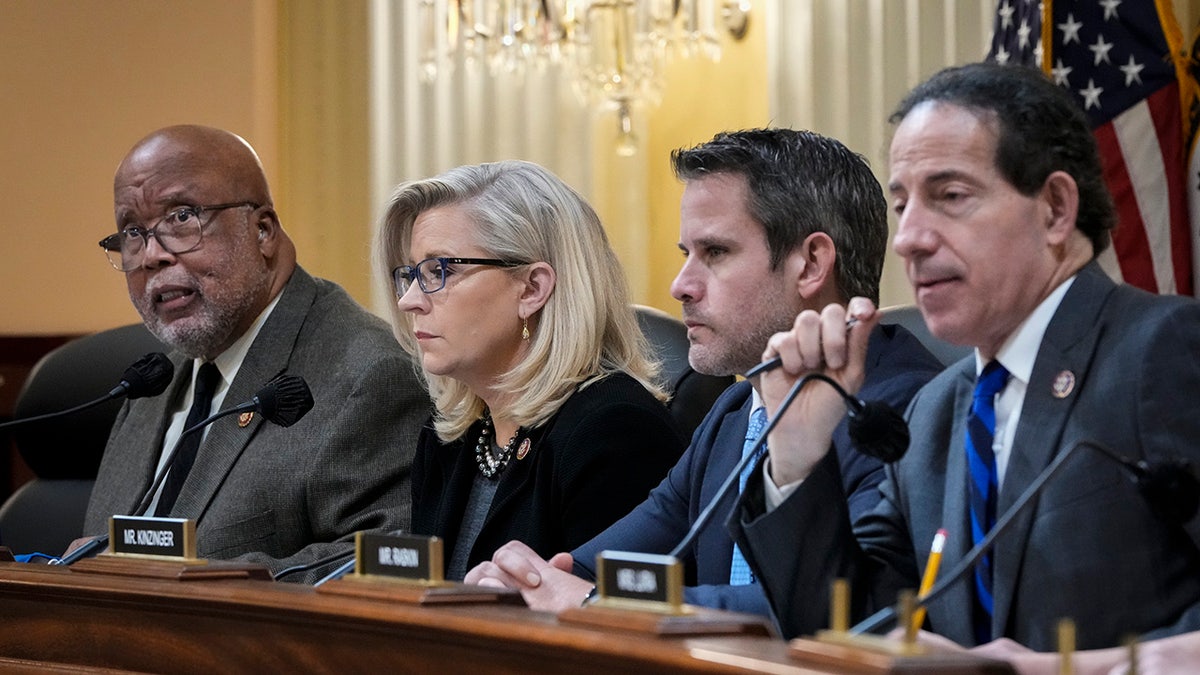Chad Pergram recaps Jan. 6 committee's first primetime hearing
Fox News chief congressional correspondent Chad Pergram reports from Capitol Hill.
The names were a jumble.
And they would be for any 18-year-old kid who just broke into radio, worked in the newsroom at a big news station in Cincinnati and was struggling to unwind the Iran-Contra scandal.
Fresh out of high school, I got to anchor the overnight newscasts on the weekend at WKRC-AM in Cincinnati back in those days. But I worked in the newsroom during the week. And 1987 was my introduction to how Congress sometimes conducts major, summertime hearings.
The TV networks blew out "As the World Turns" and "Ryan’s Hope" to air the Iran-Contra hearings. And at 35 minutes past each hour, my job was to sit by a vertically-mounted tape machine in the newsroom and make sure that two, tri-hole, TASCAM metal reels were rotating. I punched a couple of buttons and turned a dial. This was the setting for our dedicated feed from ABC Radio News in New York. My job was to record and dub the hourly "news call" of reports and soundbites which ABC would feed to local stations all over the country. We would then use them in our local newscasts at WKRC.
Every hour that summer, it was a cavalcade of soundbites from Iran-Contra figures from that day’s hearing.
THE HITCHHIKER’S GUIDE TO WHETHER THE JAN 6 COMMITTEE IS 'LEGITIMATE'
"ABC. Zero-Seven. News Net Two. East!" intoned a rich tenor voice, down the line from New York, announcing to stations the feed was about to begin.
I have no idea who this guy was. But there was just a way he said "ABC. Zero-Seven" — like it was some sort of designation for a spy in MI6. And then he always inflected "East!" as though it was the most exclusive point on the compass. North, south and west were just pedestrian directions.
The names and soundbites came next, each proceeded by a bothersome beep.
Oliver North. Elliott Abrams. Caspar Weinberger. Richard Secord. Lawrence Walsh. Sen. Daniel Inouye, D-Hawaii. Even reports from ABC’s Vic Ratner — who I got to know here at the Capitol years later.

Nov. 3, 1980 file photo, former President Gerald Ford lends his support to Republican presidential candidate Ronald Reagan and his running mate George H.W. Bush, in Peoria, Ill. (AP Photo/File)
I grew familiar with the names and even could tell the voices of each player over a few weeks of listening to the hearings and fielding the hourly news call. It was like learning characters in a play. But ask me to explain Iran-Contra? The Reagan-era "arms for hostages" scandal? It was a steep learning curve to understand what was Hezbollah. I would sometimes hear them talk about "the Boland amendment." That’s a reference to late Rep. Edward Boland, D-Mass., and his "rider" to a defense bill. It specifically barred the U.S. from assisting the Contra rebels in Nicaragua.
And yet, the Reagan Administration was accused of engineering a back channel scheme to funnel aid to the Contras — by covertly selling arms to Iran — and diverting the profits.
ROBERT MCFARLANE, REAGAN NATIONAL SECURITY ADVISOR INVOLVED IN IRAN-CONTRA AFFAIR, DIES
Complex? Yes. Did I get all of it? Not quite.
But it was fascinating. Hard not to watch. I was already interested in politics. Those hearings were formative in shaping my interest in wanting to report on Congress.
The hearings served as their own daytime soap opera.
"The House Select Committee to Investigate Covert Arms Transactions with Iran" and "The Senate Select Committee on Secret Military Assistance to Iran and the Nicaraguan Opposition" merged to convene the hearings. Inouye led the Senate portion. Former Rep. Lee Hamilton, D-Ind., was in charge of the House part.
The ranking Republican on the House panel: Former Vice President and Rep. Dick Cheney, R-Wyo.

Chairman Bennie Thompson, D-Miss., makes remarks during the Select Committee to Investigate the January 6th Attack on the United States Capitol. (Photo By Tom Williams/CQ-Roll Call, Inc via Getty Images)
NANCY REAGAN WAS DRIVING FORCE IN GETTING HUSBAND TO APOLOGIZE FOR IRAN-CONTRA AFFAIR
The hearings launched in early May, 1987 and drifted into June. Early to mid-July focused largely on Oliver North and what President Reagan knew or didn’t know about the operation. Mid-and early August turned to how late Secretary of State George Schultz opposed arms for hostages and if advisors deceived the President.
The hearings concluded on August 6.
They were a summertime blockbuster — filling the TV screen on a daily basis. If you entered an appliance store during the summer of 1987, the showroom manager would have every TV for sale tuned to the Iran-Contra hearings.
But the hearings could be a little hard to follow. They were on TV. But they weren’t made for TV.
Which brings us this summer’s mega-series: The January 6th committee hearings which dropped in mid-June. The committee is slated to do a prime-time hearing next Thursday night. But that won’t necessarily be the last hearing before the panel releases its final report.
And unlike the Iran-Contra drama, these hearings are easier to follow. They are made for television.
After weeks of testimony, Cassidy Hutchinson, Rusty Bowers, Greg Jacob, and Wandrea "Shaye" Moss are household names. People even know how to spell "Van Tatenhove," after the testimony of former Oath Keeper Jason Van Tatenhove.

Cassidy Hutchinson, a top aide to Mark Meadows, retells a story involving President Trump to the House Jan. 6 select committee (Jabin Botsford/The Washington Post via Getty Images)
Observers now know the patter, ranging from Michael Luttig’s tortoise-pace speaking voice. Images of ketchup dripping down a White House wall are even pressed into their minds.
The Jan. 6 hearings are a summer news event packaged into a narrative. And, much like a miniseries or a movie, you get to know the characters and remember the key scenes. That’s crucial when staging any drama.
Critics upbraided the Jan. 6 committee for the political stagecraft. They’ve leveled particular criticism at the top Republican on the panel, Rep. Liz Cheney, R-Wyo., for her Hitchcock-esque cliffhangers near the end of each hearing and even O. Henry surprises.
The 1/6 committee isn’t bound by usual hearing strictures of yielding to the other side and offering counterpoints. That gives the committee great latitude when it comes to production and narrative.
JAN. 6 COMMITTEE: TUESDAY'S HEARING TO FOCUS ON THE TRUMP TEAM’S TIES TO FAR-RIGHT EXTREMIST GROUPS
House Minority Leader Kevin McCarthy, R-Calif., yanked all of his GOP picks for the committee after House Speaker Nancy Pelosi, D-Calif., vetoed two of his selections. So the committee can do what it wants. And there’s some statistical evidence that the committee’s hearings could be slicing into potential support for former President Trump.

Rep. Bennie Thompson (D-MS), Rep. Liz Cheney (R-WY), Rep. Adam Kinzinger (R-IL) and Rep. Jamie Raskin (D-MD) listen during a Jan. 6 committee meeting (Drew Angerer/Getty Images)
A New York Times poll revealed that 49 percent of all Republicans oppose Mr. Trump running again.
Fox was told at the genesis of the committee last summer that this panel was really conducting "the third impeachment" of former President Trump. Another argument was that this exercise was "pre-impeachment." After all, Liz Cheney herself has said repeatedly that it’s critical that Mr. Trump never get "anywhere near the Oval Office ever again."
The Iran-Contra hearings concluded late in the summer of 1987. Questions about arms for hostages dogged President Reagan for the remainder of his term. Reporters and the public wanted to know what then-Vice President George H.W. Bush knew about the deal when he ran for President in 1988. Former Reagan’s memory was hazy about Iran-Contra. He said "I don’t recall" or "I can’t remember" 88 times during a deposition about Iran-Contra a year after he left the White House.
CLICK HERE TO GET THE FOX NEWS APP
Few remember much about Iran-Contra now. It was a convoluted tale and was hard to distill into an individual event. But the hearings dominated the Washington news cycle in the summer of 1987.
This summer, the 1/6 committee competes against stories about inflation, gas prices, monkey pox and Sen. Joe Manchin, D-W.V. All notable. But like Iran-Contra hearings, the 1/6 committee hearings dominate the solstice of 2022.






















